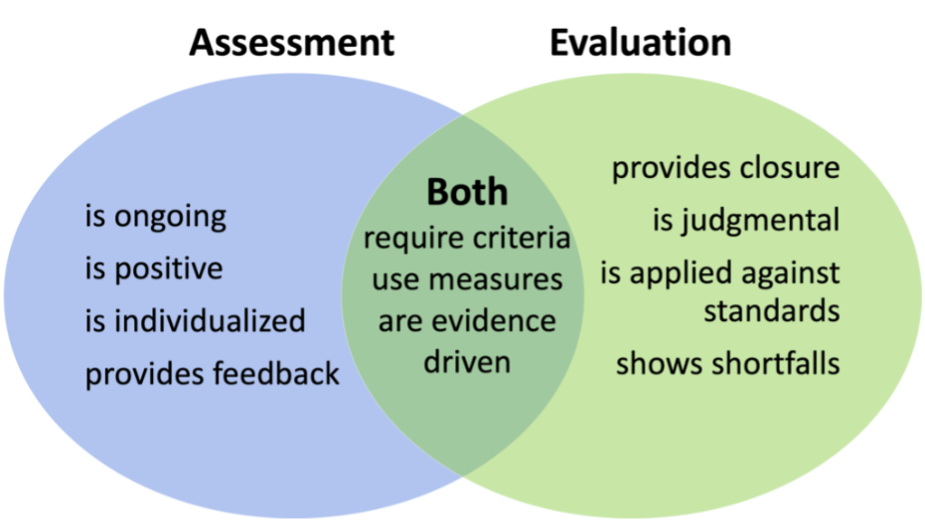Assessment
Assessment of institutional effectiveness involves the systematic, organized and sustained collection and analysis of data (i.e. continuous improvement in academic programs, technology, student support services, and other administrative offices).
Evaluation is a part of the institutional effectiveness process that assesses the outcomes of a program or unit. The results of the evaluation are used to inform decision making and strategic planning.
Although the terms assessment and evaluation are often used synonymously, they are distinctive and different. The intent of assessment is to measure effectiveness; evaluation adds a value component to the process.

Definitions
- Expected Outcomes: Measurement statements describing what should occur as a result of a program or unit’s work. Program outcomes are in agreement with goals/objectives; however, they are typically focused on the program quality and impact of the unit’s work as opposed to completion of tasks.
- Student Learning Outcomes: Measurement statements describing what students should know, think and be able to do upon completion of an academic program.
- Assessment Plan: A document articulating the program or unit’s mission, the intended outcomes of its work, methods to be used to measure these outcomes, and targets for determining success.
- Assessment Instrument: An instrument measuring the program or unit’s accomplishment objectively, which meets the criteria of reliability, validity, and fairness to determine program or unit’s effectiveness.
- Assessment Report: A summary report generated from a program or unit describing the outcomes measured during the past year, the findings from those assessments, and how the results were used to make decisions and improvements.
